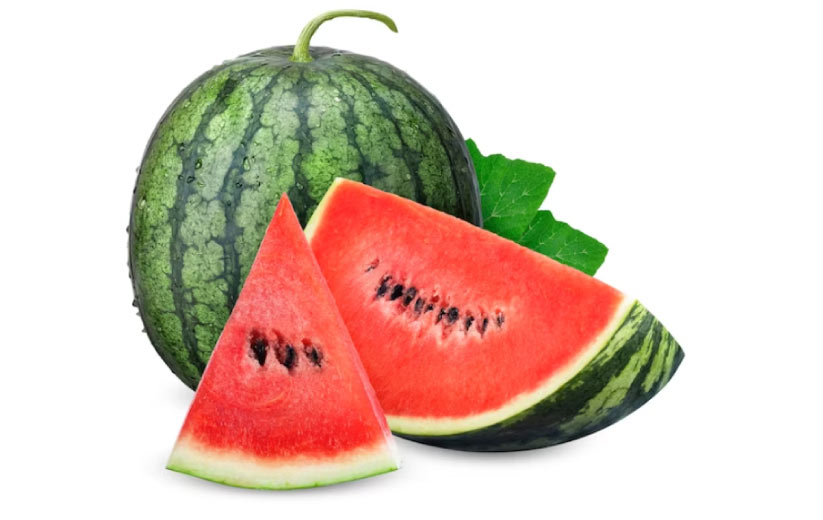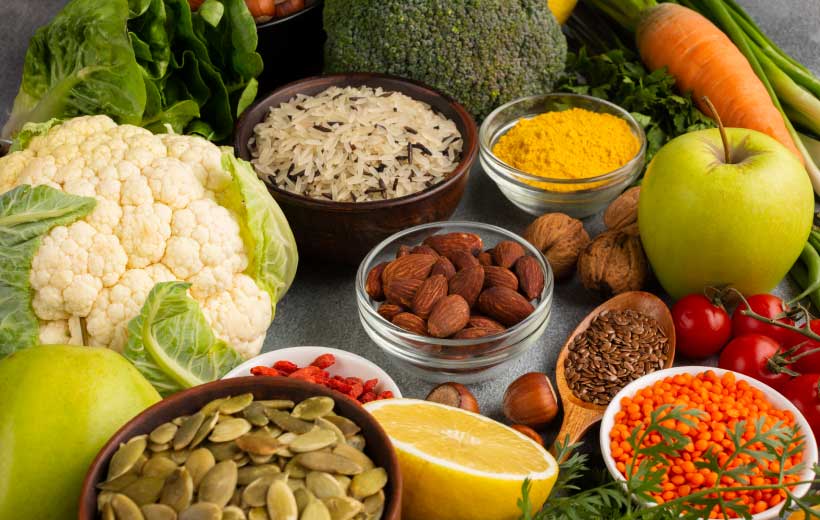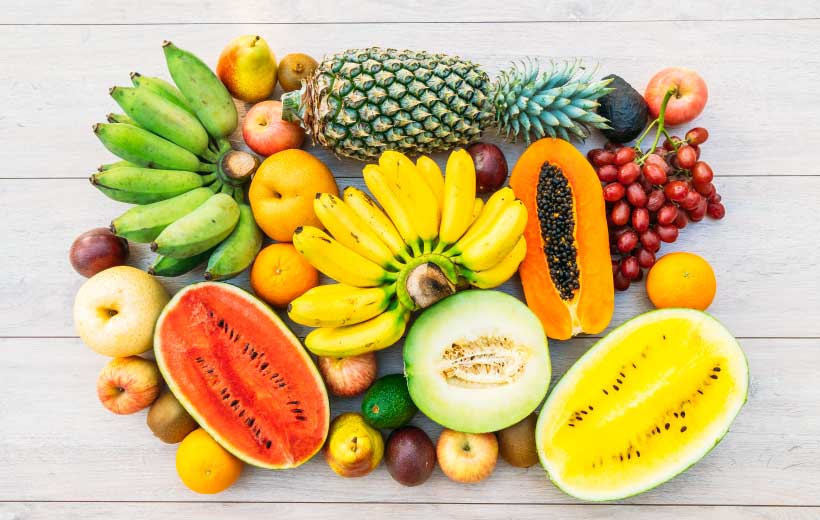Watermelon is one of the favorite fruits of many people in every hot summer. This fruit not only has a sweet and refreshing taste but also offers certain health benefits because they contain many essential nutrients, such as vitamins, minerals, and plant compounds.
1. What is the watermelon?
Watermelon (Citrullus lanatus) is a large fruit, native to southern Africa, in the same family as cantaloupe, zucchini, pumpkin, and cucumber.
Watermelon usually has a cool sweet taste and contains only 46 calories per cup, but is rich in vitamin A, vitamin C, and other plant compounds like citrulline and the healthy lycopene.
Besides, this type of melon also brings many health benefits to users, including improving insulin sensitivity, reducing muscle soreness, and lowering blood pressure.
Watermelon is usually eaten directly, frozen, or made into juice or smoothie.
2. Nutritional value of watermelon
The main ingredients in watermelon are water (91%) and carbs (7.5%). Watermelon, on the other hand, has almost no protein or fat and is exceptionally low in calories.
Here are the nutrients found in 2/3 cup (100 grams) of watermelon, including:
- Calories: 30
- Country: 91%
- Protein: 0.6 grams
- Carbs: 7.6 grams
- Sugar: 6.2 grams
- Fiber: 0.4 grams
- Fat: 0.2 grams

2.1. Carbs
One cup of watermelon (152 grams) contains 12 grams of carbs, mostly simple sugars, including fructose, glucose, and sucrose. In addition, watermelon also provides very little fiber.
Besides, the glycemic index (GI – a measure of how food affects blood sugar after a meal) of watermelon ranges from 72-80, reaching a high level. However, because watermelon contains quite a few carbs, it does not affect blood sugar levels much.
2.2. Fiber
2/3 cup (100 grams) of watermelon provides only about 0.4 grams of fiber. However, the fructose content of watermelon is quite high in FODMAP, aka fermentable short-chain carbohydrates. Therefore, eating large amounts of fructose can cause unpleasant digestive symptoms because the body doesn’t fully digest them, such as bloating, constipation, gas, or diarrhea.
2.3. Vitamins and minerals
Watermelon is a fruit that provides many essential vitamins and minerals for the body, such as vitamin C, vitamin A, vitamin B5, or potassium.
- Vitamin C: makes up a large percentage of watermelon, acts as an antioxidant, helps improve skin health, and strengthens the function of the immune system.
- Vitamin B5: also known as pantothenic acid. This is a water-soluble vitamin, found in many foods such as peanuts, milk, cheese, and broccoli. This vitamin works to prevent infection, and aging, increase resistance, and reduce the risk of diseases such as asthma or heart disease.
- Vitamin A: watermelon contains beta carotene, when entering the body, it will convert to vitamin A. This vitamin plays an extremely important role in health, including the treatment of diseases of the digestive tract, and skin problems, preventing diabetes and cancer.
- Potassium: helps control blood pressure and protects heart health.
- Copper: is an important mineral for the body, has the effect of preventing cancer, is an anti-oxidant, and improves the functions of the nervous system.

3. Health benefits of watermelon
Because watermelon contains many important nutrients, it can provide certain health benefits. Detail:
3.1. Prevent cancer
Researchers have said that lycopene and some other plant compounds in watermelon have great anti-cancer effects.
These substances work strongly, reducing cancer risk by reducing insulin-like growth factor (IGF) – a protein involved in cell division, high IGF levels can cause cancer.
In addition, watermelon also provides a large amount of cucurbitacin E, which can inhibit the growth of tumors in the body.
3.2. Improve heart health
Heart disease is one of the leading causes of death worldwide. Incorporating watermelon into your daily diet will greatly reduce the risk of heart attack or stroke by controlling cholesterol levels and blood pressure.
Studies also show that lycopene in watermelon is effective in reducing blood pressure and cholesterol levels and preventing oxidative damage to cholesterol.
For obese people or postmenopausal women, lycopene also can reduce the stiffness and thickness of coronary artery walls, preventing the risk of heart disease.
3.3. Effectively reduce inflammation
Inflammation is one of the major contributors to chronic diseases. Eating watermelon regularly can help reduce inflammation and oxidative damage because they are high in antioxidant, anti-inflammatory lycopene, and vitamin C.
In addition, lycopene has many special benefits for brain health, such as delaying the onset and progression of Alzheimer’s disease.
3.4. Prevent macular degeneration
Lycopene is also found in certain parts of the eye, helping to fight oxidative damage and inflammation. It also helps prevent age-related macular degeneration (AMD), a common eye problem that can cause blindness in older adults.
3.5. Relieve muscle pain
Citrulline is an amino acid in watermelon, which can effectively relieve muscle soreness. Using watermelon juice will help the body enhance the ability to absorb citrulline more.
3.6. Improves skin and hair health
The two types of vitamins A and C present in watermelon play an extremely important role in the health of the skin and hair.
Vitamin C helps the body make collagen, which is a protein that keeps skin smooth, firm, and elastic, and helps your hair stay strong and shiny.
Vitamin A is also essential for healthy skin as it helps regenerate and heal damaged skin cells. If the body does not have enough vitamin A, the skin will become dry and flaky.
In addition, watermelon contains both lycopene and beta-carotene which can also help protect your skin from sunburn.
Follow the website ongreenbeauty.com to get more health, nutrition, and beauty information to protect the health of yourself and your loved ones in your family.





Good post. I learn something totally new and challenging on blogs I stumbleupon on a daily basis. Its always useful to read content from other authors and practice something from their websites.
Greetings! Very useful advice within this article! Its the little changes that make the most significant changes. Thanks a lot for sharing!